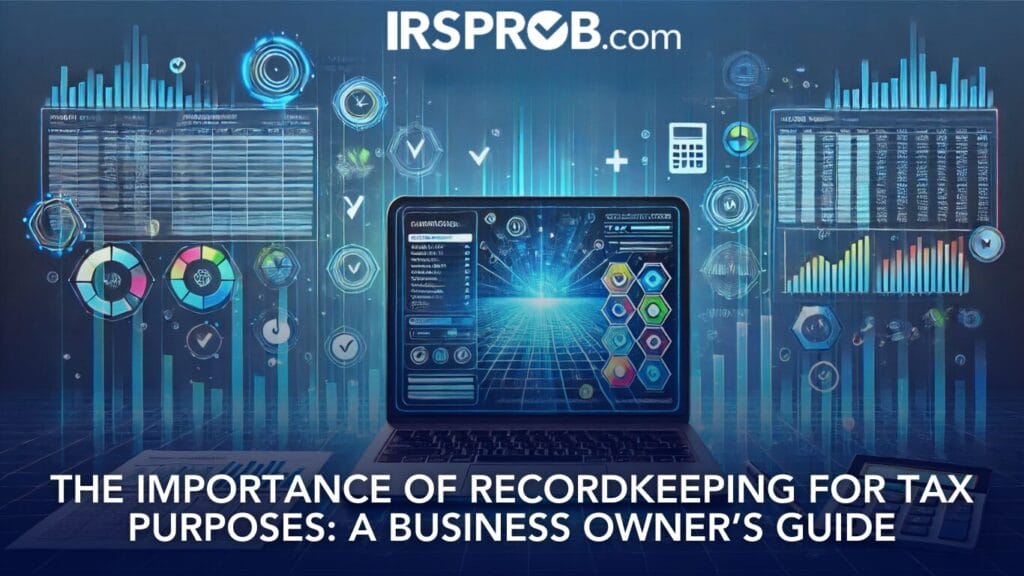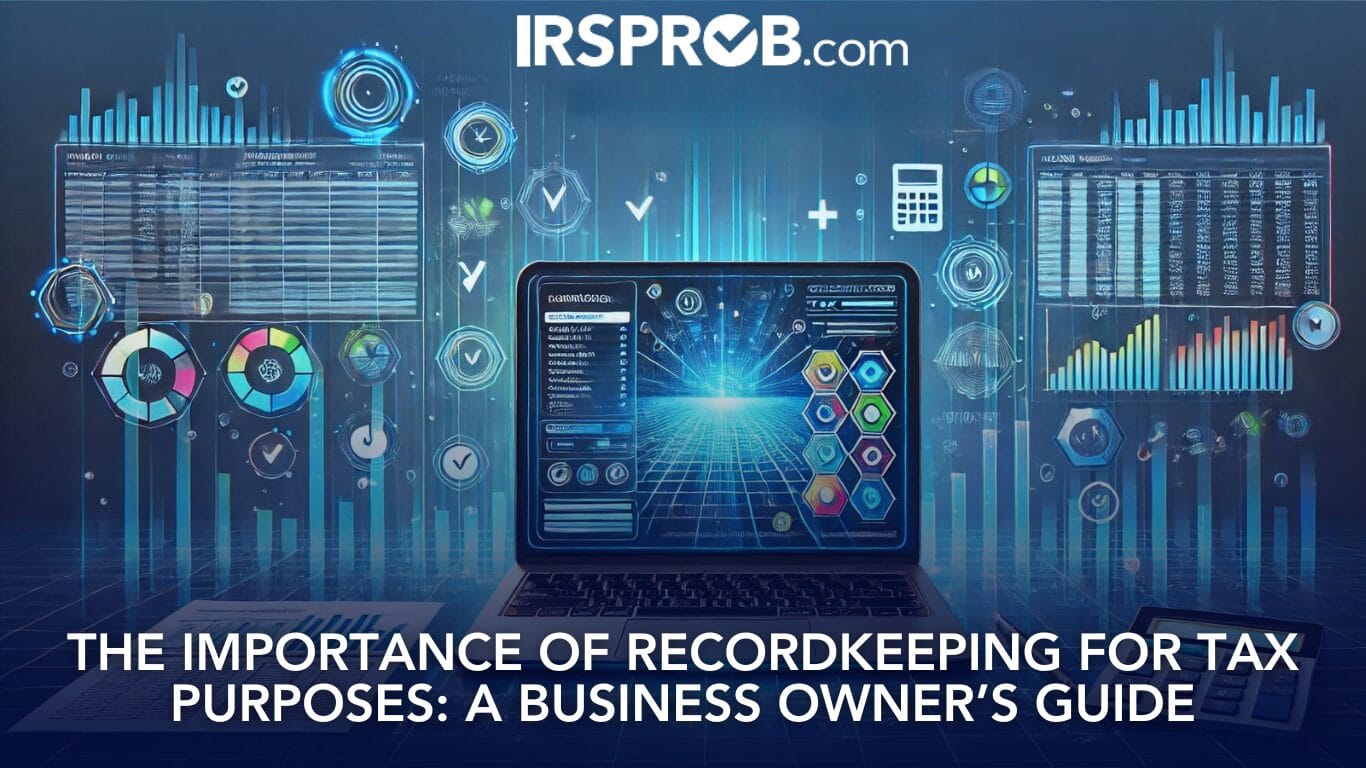
Maintaining accurate and organized tax records is crucial for every business owner. Proper recordkeeping can not only ensure that your tax returns are prepared accurately, but it can also protect you in the event of an audit or dispute with the IRS. In this blog post, we will explore essential tax records every business should keep, best practices for record retention, and how to leverage these records for effective tax planning.
Why Is Recordkeeping Important?
The IRS requires taxpayers to keep records that can substantiate the income, expenses, deductions, and credits claimed on tax returns. Without proper documentation, the IRS may disallow certain tax benefits, leading to additional taxes, penalties, and interest. More importantly, accurate records can help you:
- Prepare future tax returns more efficiently.
- Provide valuable insight into your business’s financial health.
- Support applications for loans or investor funding.
Key Records to Keep
Here’s a breakdown of the key tax records that every business owner should maintain:
1. Income Documentation
Your income records are crucial to determining your total taxable income. Make sure to keep the following:
- Forms W-2 and 1099: These forms report wages and other income earned from various sources.
- Bank Statements: These statements help track income deposited into your accounts.
- Business and Hobby Income Records: For businesses, ensure that you have accurate records of revenue earned. If you have hobby income, you must also keep track of it for tax purposes.
- Records for Sale of Business Property: Keep all documents related to the sale of assets, including sales contracts and receipts.
2. Expense Records
Business expenses reduce taxable income, but to claim them, you need to maintain proper documentation:
- Sales Slips and Receipts: These should show the amount, date, and purpose of each expense.
- Invoices: Especially for large transactions, invoices provide essential details for tracking.
- Canceled Checks or Proof of Payment: If you pay by check, debit, or credit card, keep proof of payment, which shows the transaction date, payee, and amount.
3. Deductions
Business owners can deduct many expenses, including:
- Medical Expenses and Mortgage Interest: These are applicable if your business involves real estate or if you’re eligible for certain health-related deductions.
- Real Estate Tax Records: Essential for businesses that own property.
- Donations: Records of cash and noncash contributions made to qualified charities.
Special Recordkeeping Situations
Some records are required for specific tax credits or situations:
- Alimony: Keep copies of agreements for alimony payments.
- Business Use of Home: Maintain records of the part of your home used for business and the associated expenses. For example, child care providers should track the hours spent on business activities.
- Vehicle Records: If you use your vehicle for business purposes, keep a detailed mileage log and records of vehicle expenses such as fuel, maintenance, and repairs.
How Long Should You Keep Tax Records?
The IRS recommends that you retain tax records for as long as they are relevant to your return. The standard retention period is three years after the filing of the tax return. However, certain situations may require longer retention:
- Six Years: If you omit more than 25% of your gross income on a return.
- Seven Years: For losses due to worthless securities.
- Unlimited: If you do not file a return or file a fraudulent return.
Transition to Electronic Records
While paper records can be cumbersome, storing them electronically is a practical solution. Ensure that your electronic records meet the same standards as paper records—keeping them legible and secure is paramount. Regularly back up digital files and store them in a reliable, secure location to avoid any loss of important data.
The Consequences of Poor Recordkeeping
If you fail to keep adequate records, the IRS may disallow deductions, resulting in additional tax liability and potentially triggering accuracy-related penalties. The penalties for failing to substantiate tax return items can be significant, so proper documentation is your best defense against costly IRS adjustments.
Leveraging Good Recordkeeping for Tax Planning
Maintaining thorough records throughout the year can greatly enhance your tax planning efforts. With organized records, you can:
- Optimize Deductions: Understand which expenses qualify for deductions, ensuring that you maximize your tax benefits.
- Plan for Future Tax Years: Historical records can help forecast your future tax liabilities, helping you avoid surprises.
- Improve Financial Management: Detailed records offer insights into cash flow, enabling you to make informed business decisions.
Conclusion
As a business owner, you can avoid a lot of stress by keeping meticulous tax records. Not only will this save you time when preparing returns, but it will also help you avoid penalties and optimize your tax situation. By maintaining both income and expense documentation, adhering to retention guidelines, and leveraging electronic storage, you can streamline your recordkeeping process and stay compliant with IRS requirements.
Proper recordkeeping is an investment in your business’s financial future—start today to ensure your business thrives tomorrow.
For personalized advice tailored to your business, contact IRSProb.com. We can guide you through best practices for tax preparation, tax planning, and keeping compliant with IRS regulations.








